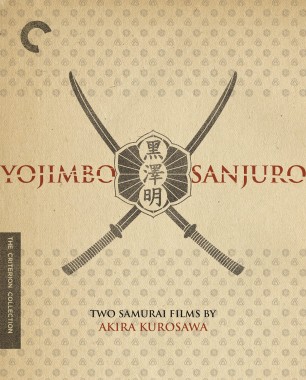Rashomon

A riveting psychological thriller that investigates the nature of truth and the meaning of justice, Rashomon is widely considered one of the greatest films ever made. Four people give different accounts of a man’s murder and the rape of his wife, which director Akira Kurosawa presents with striking imagery and an ingenious use of flashbacks. This eloquent masterwork and international sensation revolutionized film language and introduced Japanese cinema—and a commanding new star by the name of Toshiro Mifune—to the Western world.
Rashomon was restored by the Academy Film Archive, the National Film Center of the National Museum of Modern Art, Tokyo, and Kadokawa Pictures, Inc. Funding provided by Kadokawa Culture Promotion Foundation and The Film Foundation.
BLU-RAY SPECIAL EDITION FEATURES
- New digital restoration, with uncompressed monaural soundtrack
- Audio commentary by Japanese-film historian Donald Richie
- Interview with director Robert Altman about Rashomon
- Excerpts from The World of Kazuo Miyagawa, a documentary on Rashomon’s cinematographer
- A Testimony as an Image, a sixty-eight-minute documentary featuring interviews with cast and crew
- Archival audio interview with actor Takashi Shimura
- Original and rerelease trailers
- Optional English-dubbed soundtrack
- PLUS: A new essay by film historian Stephen Prince; an excerpt from director Akira Kurosawa’s Something Like an Autobiography; and reprints of Rashomon’s two source stories by Ryunosuke Akutagawa, “Rashomon” and “In a Grove”
New cover by Kent Williams
Collector's Sets
BLU-RAY SPECIAL EDITION FEATURES
- New digital restoration, with uncompressed monaural soundtrack
- Audio commentary by Japanese-film historian Donald Richie
- Interview with director Robert Altman about Rashomon
- Excerpts from The World of Kazuo Miyagawa, a documentary on Rashomon’s cinematographer
- A Testimony as an Image, a sixty-eight-minute documentary featuring interviews with cast and crew
- Archival audio interview with actor Takashi Shimura
- Original and rerelease trailers
- Optional English-dubbed soundtrack
- PLUS: A new essay by film historian Stephen Prince; an excerpt from director Akira Kurosawa’s Something Like an Autobiography; and reprints of Rashomon’s two source stories by Ryunosuke Akutagawa, “Rashomon” and “In a Grove”
New cover by Kent Williams

Cast
- Toshiro Mifune
- The bandit
- Machiko Kyo
- The woman
- Masayuki Mori
- The man
- Takashi Shimura
- The woodcutter
- Minoru Chiaki
- The priest
- Kichijiro Ueda
- The commoner
- Fumiko Honma
- The medium
- Daisuke Kato
- The policeman
Credits
- Director
- Akira Kurosawa
- Executive producer
- Masaichi Nagata
- Producer
- Jingo Minoura
- Scenario
- Akira Kurosawa
- Scenario
- Shinobu Hashimoto
- Based on two stories by
- Ryunosuke Akutagawa
- Photography
- Kazuo Miyagawa
- Art director
- So Matsuyama
- Music
- Fumio Hayasaka
- Lighting
- Kenichi Okamoto





















